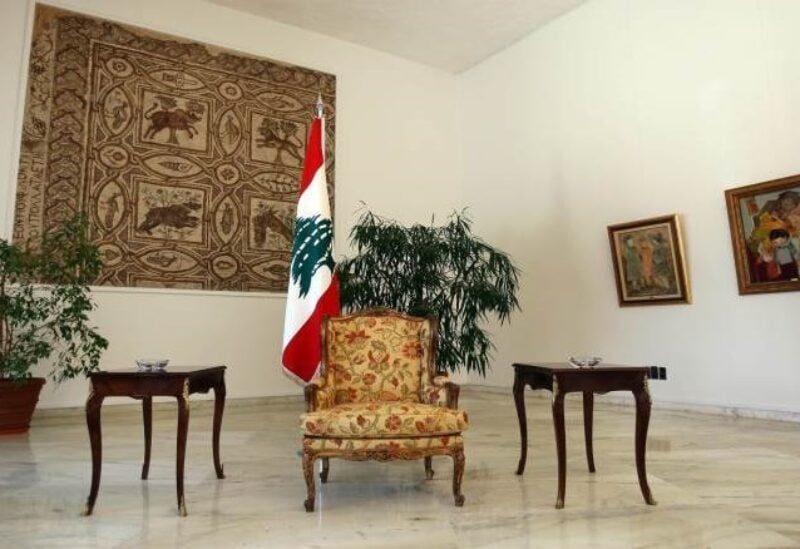
Presidency chair
The presidential vacuum in Baabda Palace has become a destiny that the republic lives through, and perhaps the harshest phase was during the period when former President Michel Aoun assumed power from former President Amin Gemayel, at which time the “general” reduced the presidency of the republic and the government to his person, and distributed ministerial portfolios to those close to him.
As a result, the country was divided onto two republics with two governments, during which the Lebanese people lived through the ferocity of the “war of abolition” between two Christian components.
General Aoun fought its first battles against the “Lebanese Forces”, pretending to fight for the “War of Liberation” against the Syrian regime and its army.
The presidential vacuum today is not similar to the previous stages or stations, according to a source following the previous presidential crises, because the settlements that existed previously and that used to end the presidential or governmental vacuum cannot be hatched as in the past, after the players changed on the scene and others withdrew. Perhaps, the most prominent of them is the regime of Bachar Al-Assad and his security and military guardianship that controlled Lebanon and its republic.
However, today. his authority has faltered after the people’s revolution against him, and his decision became dependent on Tehran and Moscow.
At the domestic level, the changes brought about by the parliamentary elections overthrew the decisions of exclusivity that were controlled by the opposition axis, which the “Aouni movement” lined up with and established its relationship with through what was known as the “Mar Mikhael agreement.”
However, the paradox is that the head of the “Free Patriotic Movement,” MP Gebran Bassil, who used to sit on the largest Christian bloc, became, after the aforementioned elections, a partner with other Christian parties and was no longer able to reap the fruits in the centers of the state and support his ally “Hezbollah” in completing his project to fully control the state’s politics domestically and internationally.
Not to mention his defeat when he was left to his fate after the end of the term of former President Michel Aoun, thus the Shiite duo naming former minister Sleiman Franjieh as a candidate to fill the presidency chair.
Despite the attempts made by Bassil to blackmail his ally, he was sure that his “return” would be to Haret Hreik, where he returned to turn towards it with the failure of the last session of the House of Representatives to name any candidate. Following this, he started his battle against his own ally.
Today, “Hezbollah” has returned to raising the ceiling of its rhetoric, and “dialogue” has been absent from the positions of its basic leaders, the most recent of which was the speech of the head of the “Loyalty to the Resistance Bloc,” MP Mohammad Raad, who recalled the party’s calamities.